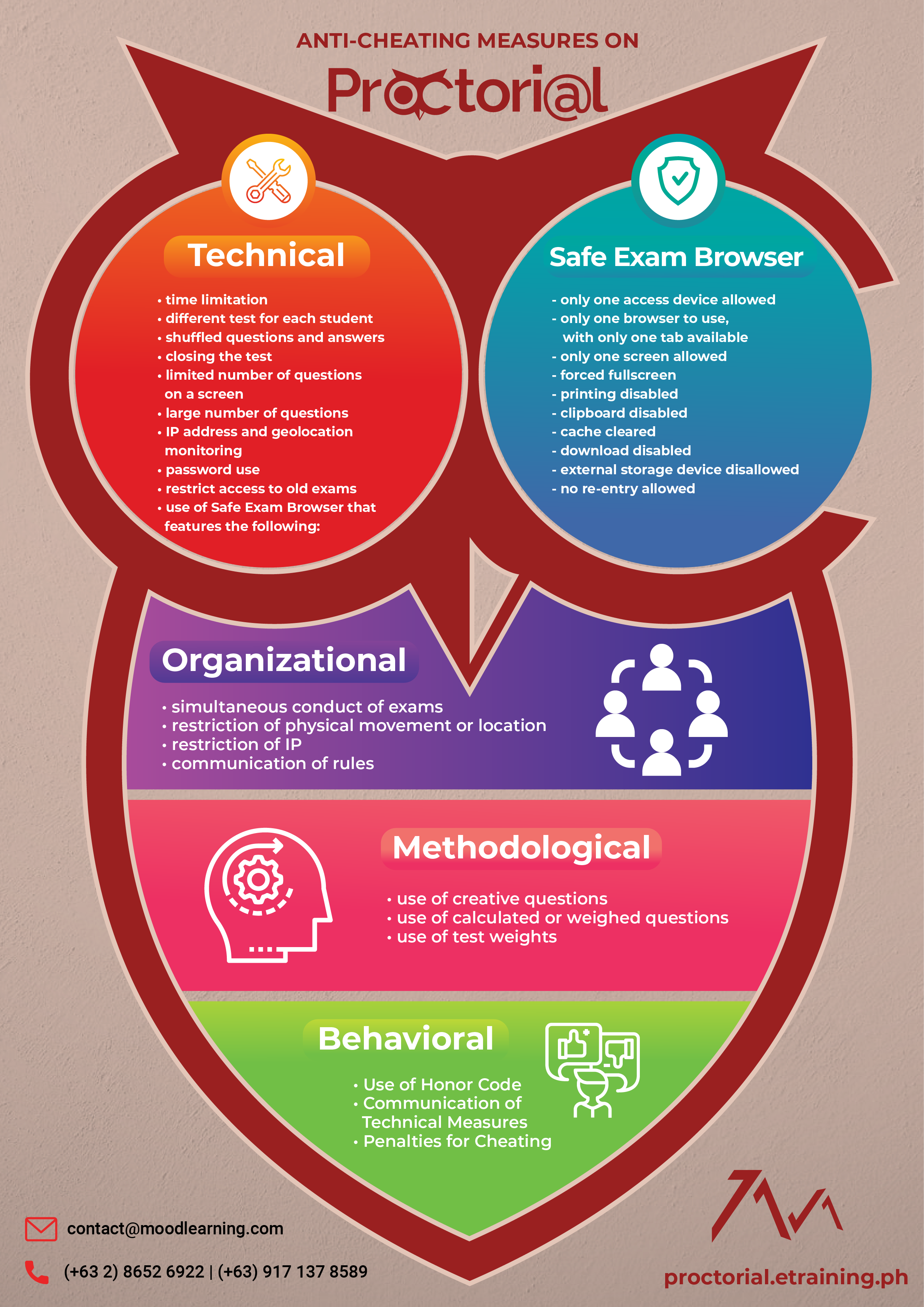We’re Online Cheaters All (Or Not!)


How and why do people cheat? Most (if not all) people would like to think of themselves as honest. But why are exams designed as if people are cheaters? How do otherwise honest individuals inevitably end up in certain situations in which they’re more likely to cheat? In an exam? Online exam?
For edtech practitioners and advocates like us at moodLearning, learning why we cheat might help us avoid the temptation of cheating or at least not help incentivize the behavior among ourselves. However, if the question is all about the hows and whys of cheating, we might just as well send you down the work of psychologist and behavioral economist Dan Ariely as a good place to start. There we'd learn more about things like feeling disconnected from the consequences or when our willpower is depleted, can lead us down to a cheater's path, however we put ourselves in high regard.
In any case, even after reading about the whys and hows of cheating, you still feel the need for a toolbox to help prevent cheating, especially in online exams, then you could put our work to good use. At moodLearning, we recognize that online cheating is a complex behavior. Yet, we definitely can help not incentivize it in at least one narrow area of online test taking.
What we propose is the use of an arsenal of measures, including technical, organizational, methodological, and behavioral--fine-tuning them according to the needs of specific exams for particular test-takers. Most of these measures could well fall outside the exam itself. Hence, the need to orchestrate the conduct collaboratively. The level of "strictness" would depend on what the exam exercise is all about, what goals to achieve, or how "trusting" the teacher or proctor is.
If you're on a moodLearning-supported learning management system, you have at your disposal at least all the technical measures indicated in this infographic:

For instance, using Safe Exam Browser, you can implement an exam lockdown: only one access device is allowed, only one browser can be used (with only one tab available), only one screen allowed. You can force fullscreen and have printing, download, and clipboard disabled, cache cleared, or external storage device disallowed. If the test taker logs out, you may disallow re-entry. You can even force the test taker to signify adherence to an Honor Code.
We certainly do not recommend relying solely on technical means to thwart cheating. What competences do you expect to measure with the exam? What kind of people or professionals do you expect to come out of your training program and exams? While the technical measures would give you a semblance of "strictness", at the end of the day, what the exam is about and what it seeks to achieve are all that matter.